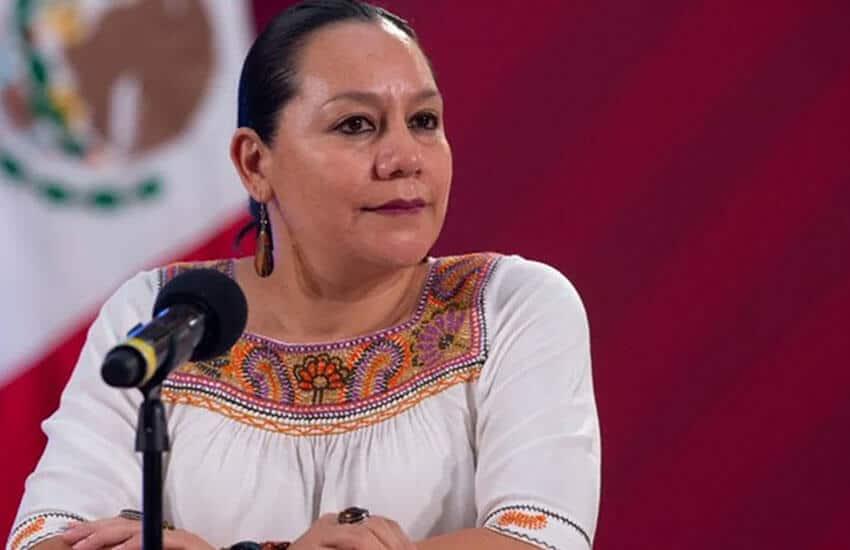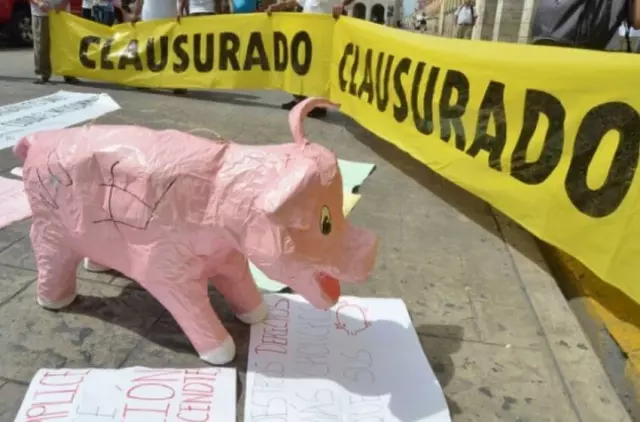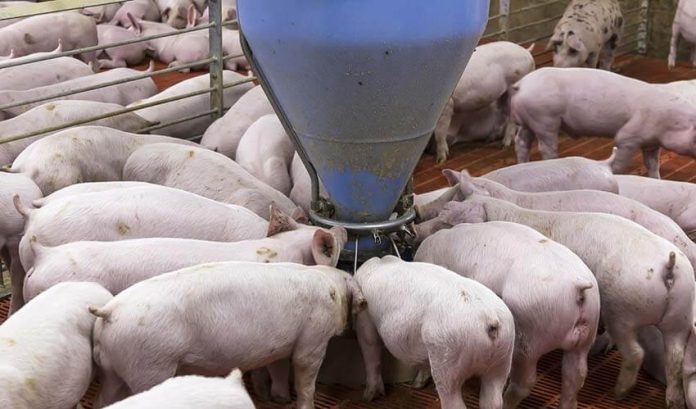A collective of seven organizations has written to President López Obrador and Environment Minister María Luisa Albores to denounce the environmental impact of large pig farms in the state of Yucatán and to chastise authorities for failing to rein in the industry.
In an open letter published by nongovernmental organization Indignación, the collective — “representatives of various Mayan towns of the Yucatán Peninsula” — said that the large-scale pig farming industry has grown more quickly in the state of Yucatán in recent years than anywhere else in the country.
“The establishment of farms with thousands of head of swine is a business activity that has multiple environmental impacts,” the letter said, citing serious damage to “our land, water, natural resources and way of life.”
Concerns have previously been raised about the impact of pig farms on Yucatán’s bee population and on its cenotes, or natural sinkholes.
The seven organizations, among which are the Western Yucatán Mayan Council, the Mayan Committee of Homún and the Yaxkukul Residents Committee, also said that the establishment of huge hog farms has violated “our autonomy and self-determination.”

They have filed several reports of environmental, social, cultural and territorial damage caused by large-scale pig farms, they said, and have asked all three levels of government to take steps to “put the brakes on this activity and guarantee our right to self-determination and a healthy environment.” But “to date, no authority has listened to us,” the letter said.
In that context, the collective said it “noted with surprise” that the federal Environment Ministry (Semarnat) admitted in a March 25 statement that “one of the main environmental problems on the Yucatán Peninsula is the increase [in the number] of pig farms.”
In a statement with the heading, “Where were the pseudoenvironmentalists when the true devastation of the southeast of Mexico began years ago?” the Semarnat said it was working to remedy the “socio-environmental disaster” that past administrations “allowed and promoted” for “the benefit of a few over the common good.”
The statement — a response to those who have denounced the Maya Train project — cited “some serious situations from the past 30 years that really have damaged the natural wealth” of Mexico’s southeast, the region through which the 1,500-kilometer railroad will run.
One of the examples cited was the “indiscriminate growth” of pig farms.
“In the state of Yucatán, the local pig farmers’ association has mentioned having at least 500 farms in 50 municipalities, … whose impact on human health and the environment due to deforestation, ecological imbalance and contamination of cenotes is undeniable,” Semarnat said.

Given that the federal government acknowledged the serious problems created by pig farms, the Yucatán collective said it was surprised that it has taken no action to remedy the situation.
“Up to now, the actions implemented … [by] the federal (and state) executive to stop this activity that seriously affects our towns are nonexistent,” the letter said.
The collective complained that neither President López Obrador nor other officials who have traveled to Yucatán with him have addressed the issue or met with the affected communities “to listen to us and attend to our petitions.”
It also said that it has had no response from Minister Albores despite inviting her to meet with people adversely affected by the pig farming industry.
“Faced with this situation, once again and in an open way, we would like to invite you to meet with the people … standing up to this industry that contaminates our territory and water and places our survival and cultural identity at risk,” the letter said.
“… In the context of a multicultural country such as ours, intercultural dialogue between indigenous peoples and the authorities of the day is essential,” the collective said,
“… We extend an invitation to visit us between April 6 and 13 in the town of Homún, where for six years we’ve been … [defending] our territory and water from the operations of a mega farm of 49,000 pigs,” it said.
“We and other people who live with the impacts of this industry want to initiate … dialogue about the actions that must be carried out to protect our water, environment and health and our rights as Mayan people.”
Yucatán residents have previously protested agains the Homún “mega farm” in Yucatan’s capital of Mérida. The Supreme Court last year upheld a suspension of the farm’s operations, which were first halted after a 2018 Yucatán court decision; however, activists fear they could be allowed to resume.
Greenpeace said in late March that it had collected via an online petition more than 181,000 signatures against the adverse impact large pig farms have on Yucatán’s environment. The petition urged authorities to not allow the construction of more farms or the expansion of existing ones.
Mexico News Daily
